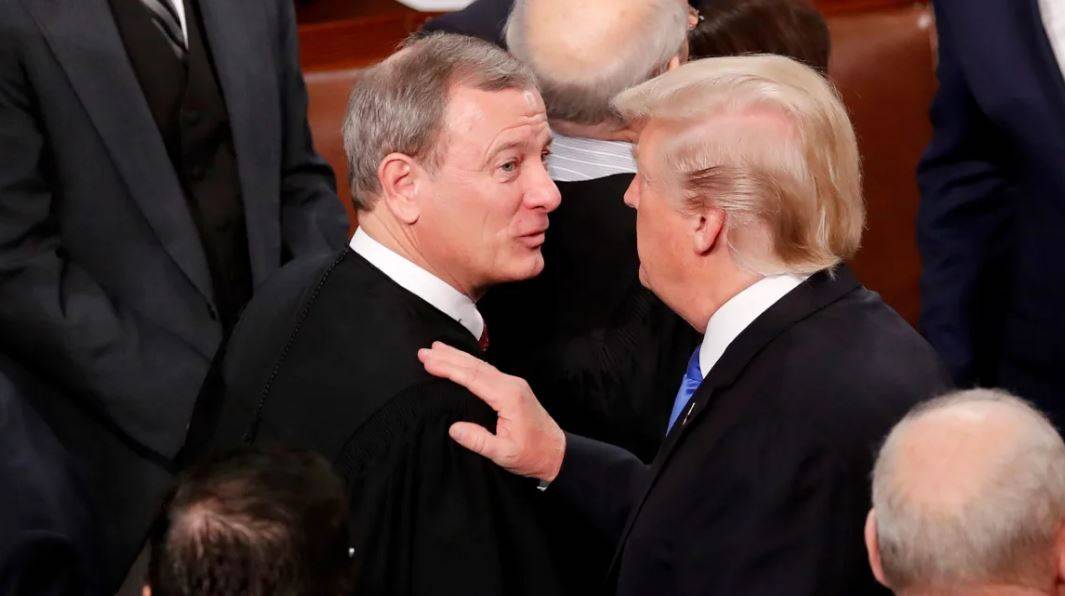Throughout an approximately three-hour session of historic Supreme Court arguments, John Roberts maintained a reserved demeanor. However, the astute chief justice conveyed several key points distinctly.
Firstly, the lower court’s decision denying Donald Trump absolute immunity will not persist. Roberts emphasized that the court cannot rely solely on the good faith of prosecutors. Moreover, regardless of the significant allegations of election subversion against Trump, those matters are not directly pertinent to this case.
Nevertheless, Roberts refrained from fully disclosing his stance on the case’s merits, opting instead to observe as other justices presented their arguments both for and against the former president. This strategic approach will undoubtedly afford the chief justice more flexibility as the nine justices deliberate on the verdict.
In light of the signals emanating from Roberts and his colleagues during Thursday’s proceedings, it appears that a majority of the justices will reject Trump’s broad assertion and find him potentially liable for criminal charges related to actions undertaken during his presidency.
However, even if Trump faces setbacks on constitutional grounds, he may find reprieve in the practicality of avoiding accountability for charges stemming from the 2020 presidential election until after the 2024 election – a concession from the conservative-dominated Supreme Court.
The tone of the arguments markedly differed from the sentiments expressed by lower court judges who previously reviewed Trump’s claims. While Roberts and the conservative justices focused on the potential vulnerability of former presidents to political retaliation, they sidestepped discussions on the specific allegations against Trump, including his rejection of the 2020 election results and the events surrounding January 6, 2021, at the US Capitol.
The attention of the DC Circuit US Court of Appeals had been directed towards all post-election activities involving Trump, whereas Roberts critiqued the appellate court’s opinion for its perceived lack of legal foundation and criticized its unanimous decision as circular reasoning.
Regarding the suggestion that the case be remanded to the lower court for further legal analysis and determination of which actions by Trump constitute official duties versus private conduct, Roberts asserted his perspective amidst the conservative-leaning bench. His pivotal role in closely divided controversies such as this underscores his influence, as he not only holds a potentially decisive vote but also wields significant authority in determining who authors the opinion when he sides with the majority.
In previous high-profile cases involving Trump, Roberts has often retained the responsibility of drafting the opinion, reflecting his commitment to safeguarding the integrity of the presidency while simultaneously distancing the Supreme Court from the divisive figure of Trump.
Conservative concerns regarding potential retribution against former presidents were prominently featured in the courtroom discourse, overshadowing any apprehensions about the current indictment of the presumptive GOP presidential nominee or its implications for democracy.
As the arguments unfolded, the justices, including Roberts, displayed apprehension about the prospect of a former president being targeted by an overzealous administration and prosecutors, thus prioritizing the issue of presidential immunity over allegations of criminal wrongdoing.
Despite attempts by Dreeben to redirect the focus towards the allegations against Trump, conservative justices consistently steered the conversation away from such matters, emphasizing broader concerns about the functioning of the government and the sanctity of electoral processes.
